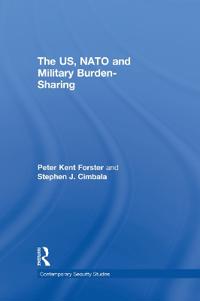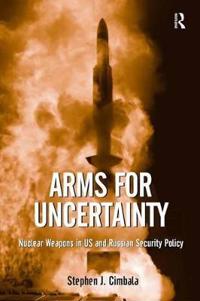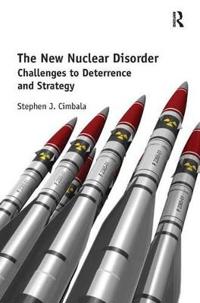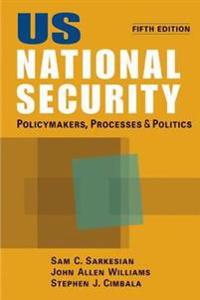The US, NATO and Military Burden-sharing (Pocket)
avStephen J. Cimbala, Peter Forster, Stephen J. Cimbala
ISBN: 9780415653077 - UTGIVEN: 2015-05This study establishes that the political, economic and military-technological changes that transform the international system also alter the way in which a state views its and others' responsibilities and burdens for responding to international crises. It assesses the distribution of the costs of r[...]
Nuclear Weapons In The Information Age (Pocket)
avStephen J. Cimbala
ISBN: 9781441126849 - UTGIVEN: 2012-04-05In today's information age, the coexistence of nuclear weapons with advanced conventional weapons and information-based concepts of warfare is a military contradiction. This is a study of how the information age in modern warfare coexists with the persistent appeal of nuclear weapons and its impact [...]
Arms for Uncertainty (Inbunden)
avStephen J. Cimbala
ISBN: 9781472409850 - UTGIVEN: 2013-10Nuclear weapons are here to stay. They have survived into the twenty-first century as instruments of influence for the US, Russia, and other major military powers. But, unlike the Cold War era, future nuclear forces will be developed and deployed within a digital-driven world of enhanced conventio[...]
The New Nuclear Disorder (Inbunden)
avStephen J. Cimbala
ISBN: 9781472455024 - UTGIVEN: 2015-01In the twenty-first century, the United States confronts an international system of great complexity and shifting security challenges. Among these challenges are those posed by nuclear weapons. Instead of becoming obsolete or being marginalized by the end of the Cold War and the demise of the Soviet[...]
US National Security (Häftad)
avSam C. Sarkesian, John Allen Williams, Stephen J. Cimbala
ISBN: 9781588268563 - UTGIVEN: 201211







